
Background information
Gary Kildall: the almost-Gates
by Kevin Hofer

He was as unscrupulous as John D. Rockefeller. His business model fuelled the PC industry like Henry Ford's Model T fuelled the mass production of cars. Jack Tramiel, a merciless, cigar-chomping tycoon, conquered the PC industry in the 1970s with his Commodore computers.
Jack Tramiel's business model is ruthless and efficient: he launches a new product at the lowest possible price. If he gets competition, he lowers the price further. He does this by drastically reducing costs, hiring top engineers, selling his goods in retail outlets such as Kmart and controlling the supply chain. If he sees an opportunity to make even more money, he changes direction instantly. He even goes so far as to introduce new products even if they harm the sales of an existing product. "Business is war", Tramiel likes to say.
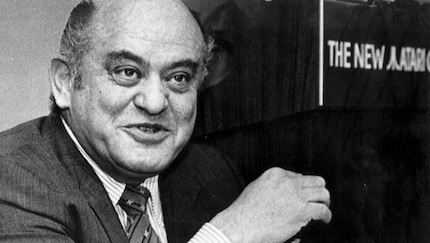
With this business model, Tramiel puts Commodore on the road to success. The PC giant is the first to sell one million units of a computer. The later Commodore 64 even sold over 20 million units - four times as many as the Apple II. The entrepreneur thus turned over a billion dollars.
How did the Polish-born entrepreneur achieve this?
Tramiel was born Jacek Trzmiel on 13 December 1928 in Lodz, Poland. After the German invasion on 1 September 1939, he and his family were imprisoned in the Jewish ghetto in Lodz. His father kept the family afloat by repairing shoes. In August 1944, the Nazis deported the family to the Auschwitz extermination camp. There, Tramiel comes into contact with Josef Mengele, the notorious SS physician. He and his mother survive Auschwitz, but his father does not.
After he was liberated by American troops, Tramiel spent two years travelling around Europe and taking on odd jobs. He even admits himself to a psychiatric sanatorium so that he can eat for free.
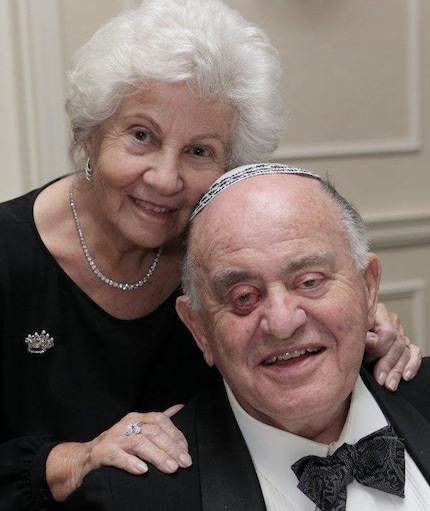
In 1947, he married Helen Goldgrub. He remained together with the woman he had met in the concentration camp for the rest of his life. He then went to the United States, joined the army and learnt how to repair typewriters. After his discharge, he drives a taxi, buys a typewriter shop in the Bronx with a GI loan of 25,000 dollars and changes the spelling of his surname.
In the early 1950s, he moved his business to Toronto, where he had a family and the laws made it easier to import typewriters from Europe. In the meantime, he founded the office machine company Commodore Business Machines (CBM). According to Tramiel himself, he chose the name because he saw an Opel Commodore while travelling in a taxi. However, this was not possible because the Commodore was not launched until 1967.
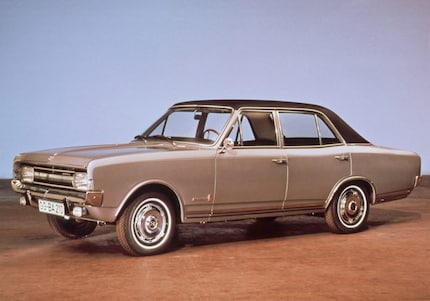
In the 1960s, Jack Tramiel becomes the subject of a publicised investigation into insider trading. This concerned loans to his company. Many of his business partners were sent to prison. Tramiel escapes the authorities because there is no evidence against him. However, the publicity is poison for his business. And without the loans, he finds himself in financial difficulties. Irving Gould, a Canadian businessman, lends Tramiel money to save CBM. Gould becomes chairman of the board of directors. Tramil is forever in his debt. Seeing no future for CBM in Canada, he moved the company to the up-and-coming Silicon Valley in California at the end of the 1960s.
A trip to Japan introduced Tramiel to digital pocket calculators. On his return, he began manufacturing them. However, the competition for price reductions in the pocket calculator business is relentless. This is where his credo comes from: Business is war. He pushes competitors out of the market by playing suppliers and retailers off against each other and then ripping them off himself. Tramiel got away with this for some time. Until finally Texas Instruments began manufacturing pocket calculators in the lower price segment. Tramiel's CBM had no chance against the giant. While Texas Instruments produces its own chips, CBM is dependent on third-party manufacturers. The price war wears the company down. In the mid-seventies, CBM was once again on the brink of collapse. Once again, Tramiel Gould had to ask for money.
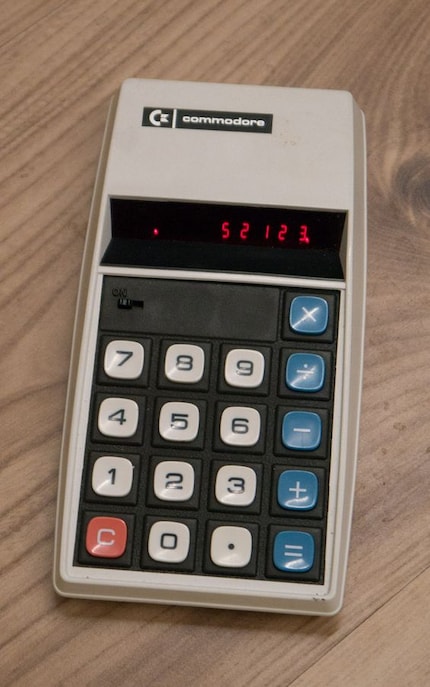
In 1976, Tramiel used Irving's money to buy a chip manufacturer in order to be independent like Texas Instruments. His goal: to steal the thunder from Texas Instruments. Tramiel's choice fell on MOS Technology. At that time, the company mainly produced chips for pocket calculators. Due to competitive pressure from Texas Instruments, it was also in difficulties. Tramiel's condition for the takeover: Chuck Peddle, one of the engineers at MOS, was to join CBM as chief engineer.
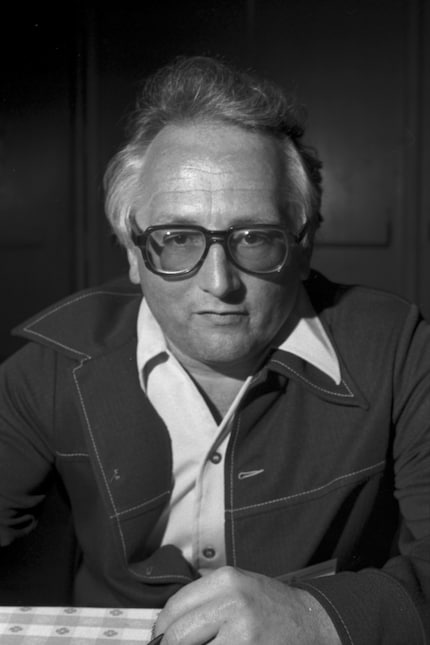
Peddle and his team are developing the 6502 microprocessor for MOS. This chip and derived variants of it were later used in the Atari 800, Apple II and the NES. So the part can do a lot and ensures that Commodore also benefits from the competition, as they use their chips. Tramiel has bought a goldmine without realising it. Peddle persuades Tramiel to let him build a PC prototype. Tramiel has no interest in the PC market so far. However, he trusts Peddle's judgement and lets him do it. In 1977, Commodore launched its Personal Electronic Transactor, or PET for short. Compared to the Apple II and the TRS-80, which were also released in 1977, the PET sold the worst in the USA. Nevertheless, it is enough to make Tramiel lick blood and want more of the PC market.
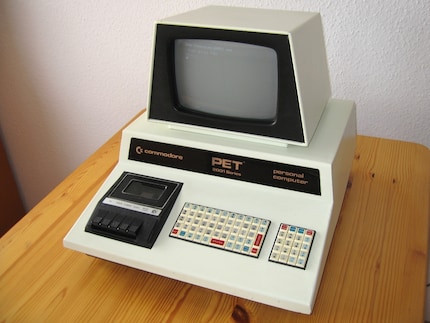
In contrast, Commodore is a force to be reckoned with in Europe with its pocket calculators. With the PET, Commodore is also establishing itself on the PC market here. But that's another story. This is about Jack Tramiel, who is mainly active in the USA and is only marginally involved with Commodore's offshoots in the rest of the world.
With the PET, CBM has also been able to land a major deal with Microsoft. On the one hand, the BASIC of the PET, Commodore BASIC to be precise, is integrated into the ROM. This means it is better protected against pirated copies. On the other hand, CBM negotiates a one-off payment with Microsoft for the licence. For a fixed amount, Commodore can distribute BASIC indefinitely for Commodore PCs based on the 6502 chip - forever. In order to have no further expenses, Tramiel stays with this version of Basic throughout his time at Commodore. This means he doesn't have to negotiate any new contracts.
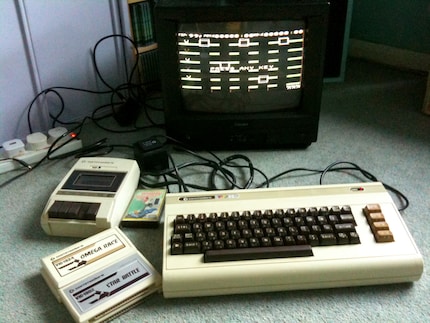
Tramiel's next computer, the VIC 20, was inspired by a former competitor. In 1980, the Sinclair ZX80, a home computer from Sinclair, was released in the UK. Like CBM, Sinclair produced low-cost pocket calculators in the 1970s. At just under £100, the ZX80 is extremely affordable. There was no such product in the USA. Businessman Tramiel recognised this and wanted to produce his next computer for the masses. "Computers for the masses, not the classes" - another of Tramiel's credos was born. This is where the paths of Peddle and Tramiel diverge. Peddle wanted to go in exactly the opposite direction to his boss.
In 1981, Commodore released the VIC 20, the first home computer in the USA for under 300 dollars. In Europe, by the way, it is called the VC 20 and also leads the field in terms of sales: the VIC 20 is the first computer in the United States to sell over a million units. The company produces 9,000 units per day. For 300 dollars, the VIC 20 was affordable for many at the time. The low price was not the only article contributing to its success. Instead of selling the VIC 20 in specialised stores as usual, Commodore offered the PC in retail outlets such as Kmart. This also plunged the specialised shops into a crisis, as customers preferred to buy the computer from Kmart. Added to this is William Shatner as the face of the VIC 20.
Who can't get their hands on that?
A few months after the VIC 20, Texas Instruments releases the TI-99/4A, also known as the ninety-niner. Tramiel's old competitor pursued a similar strategy to Commodore. At 525 dollars, the device is relatively cheap. And it is also available from retailers. Thanks to the cartridge system, it also loads games faster than floppy computers like the VIC 20. In short: apart from the price, the PC from Texas Instrument is superior to the VIC 20 in all respects. With Bill Cosby as the face of the calculator, the TI-99/4A is the PC of 1981 in the USA.
Tramiel and Commodore were once again defeated by Texas Instruments. In mid-1981, engineers Robert Russell and Robert Yannes Tramiel proposed building the successor to the VIC 20 from Commodore's existing chips. Building a new computer at low cost was very much to Tramiel's taste. He agrees. In September 1982, the C64 is launched on the market.
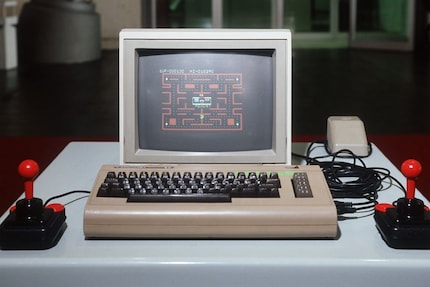
A price war breaks out between Texas Instruments and Commodore. Shortly before the release of the C64, Texas Instruments grants a $100 rebate on the TI-99/4A. At this time, the ninety-niner costs 300 dollars without the rebate, the VIC 20 250 and the C64 are announced at 600 dollars. Commodore subsequently lowers the price of the VIC 20 to 175 dollars. Nevertheless, the ninety-niner sold better at Christmas 1982.
Commodore pursues an aggressive advertising strategy for the C64, in which the competition from Apple and IBM is beaten down.
With the C64, Commodore finally abandoned sales in specialised shops. Although Tramiel promises them that they can sell the C64, the computer can also be found on the shelves of retailers a few days after the Christmas shopping season.
In 1983, the year of the video game crash, Tramiel and Commodore set out to finally conquer the computer market. He literally has Texas Instruments in a pincer: at the lower end of the price spectrum is the VIC 20, which he can sell for less than 100 dollars due to the low manufacturing costs - definitely cheaper than the TI-99/4A. At the upper end of the price spectrum is the C64. Here, too, Tramiel is able to reduce the price enormously, as it incorporates existing hardware and almost no money was spent on development. In between is the nineties.
In addition, although the TI-99/4A cartridges had positive features such as short loading times, the software had to be licensed from Texas Instruments. This is not necessary for the C64; anyone can distribute software for the Commodore PC. This finally brings Texas Instruments to its knees. The company had to reduce the price of the ninety-niner more and more. With a price of 150 dollars, the company could just about make ends meet. Commodore lowers the price of the C64 to 300 dollars by June 1983. Texas Instruments has to lower the price again. In the end, the company even pays on top. In October of the same year, Texas Instrument withdrew from the PC industry. Tramiel had his revenge for the defeat with the pocket calculators. For Tramiel, business really is war.
Commodore rules the market for home computers. Tramiel is at the top. 100 shares bought at less than 2 dollars per share in 1977 are worth more than 70,000 dollars in 1983.
In January 1984, Tramiel resigned as president, managing director and director of Commodore. No reasons are given for his resignation. Behind closed doors, there is talk of friction between him and Irving Gould.
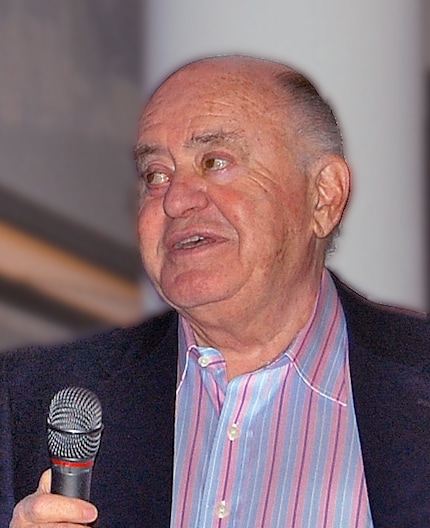
Months later, Tramiel buys Atari Corporation's home video game division. After Atari loses ground to Nintendo and other competitors, he sells the company and retires in the mid-1990s to pursue venture capital and real estate. Tramiel dies on 8 April 2012 in Monte Sereno, California.
Sources:
https://www.spiegel.de/netzwelt/gadgets/commodore-gruender-jack-tramiel-ist-tot-a-826483.html
https://www.heise.de/newsticker/meldung/Computer-fuer-die-Massen-zum-Tode-des-Commodore-Gruenders-Jack-Tramiel-1517599.html
https://www.britannica.com/biography/Jack-Tramiel
https://computerhistory.org/profile/jack-tramiel/
https://www.nytimes.com/2012/04/11/technology/jack-tramiel-a-pioneer-in-computers-dies-at-83.html
https://www.youtube.com/watch?v=nd9kmBn0M9k&t
https://www.youtube.com/watch?v=MDJqocxoOBA&t
https://www.filfre.net/2013/07/a-computer-for-every-home/
https://web.archive.org/web/20100323133002/
http://www.commodore.ca/history/company/early_commodore_history.htm
From big data to big brother, Cyborgs to Sci-Fi. All aspects of technology and society fascinate me.
Interesting facts about products, behind-the-scenes looks at manufacturers and deep-dives on interesting people.
Show all